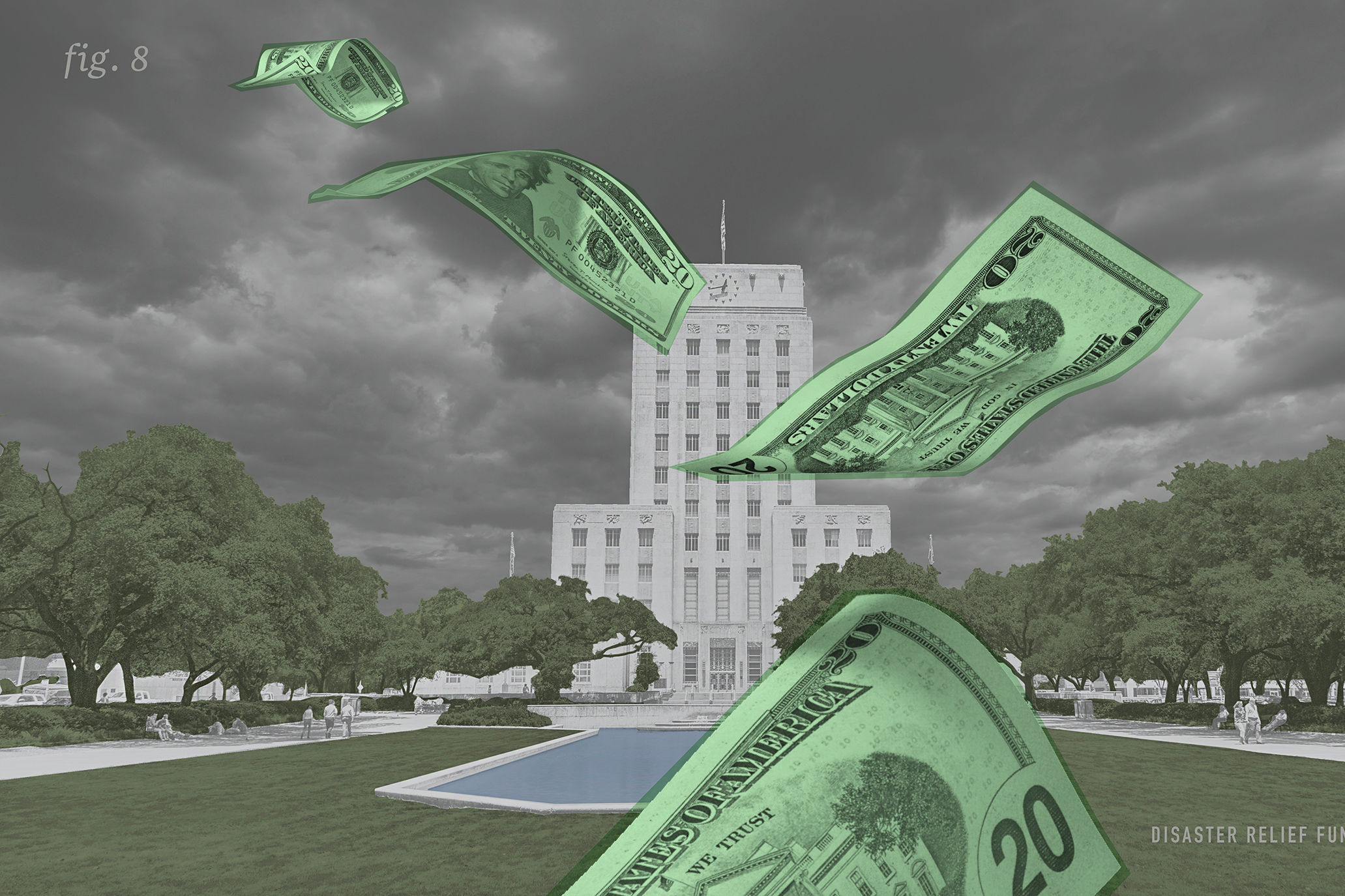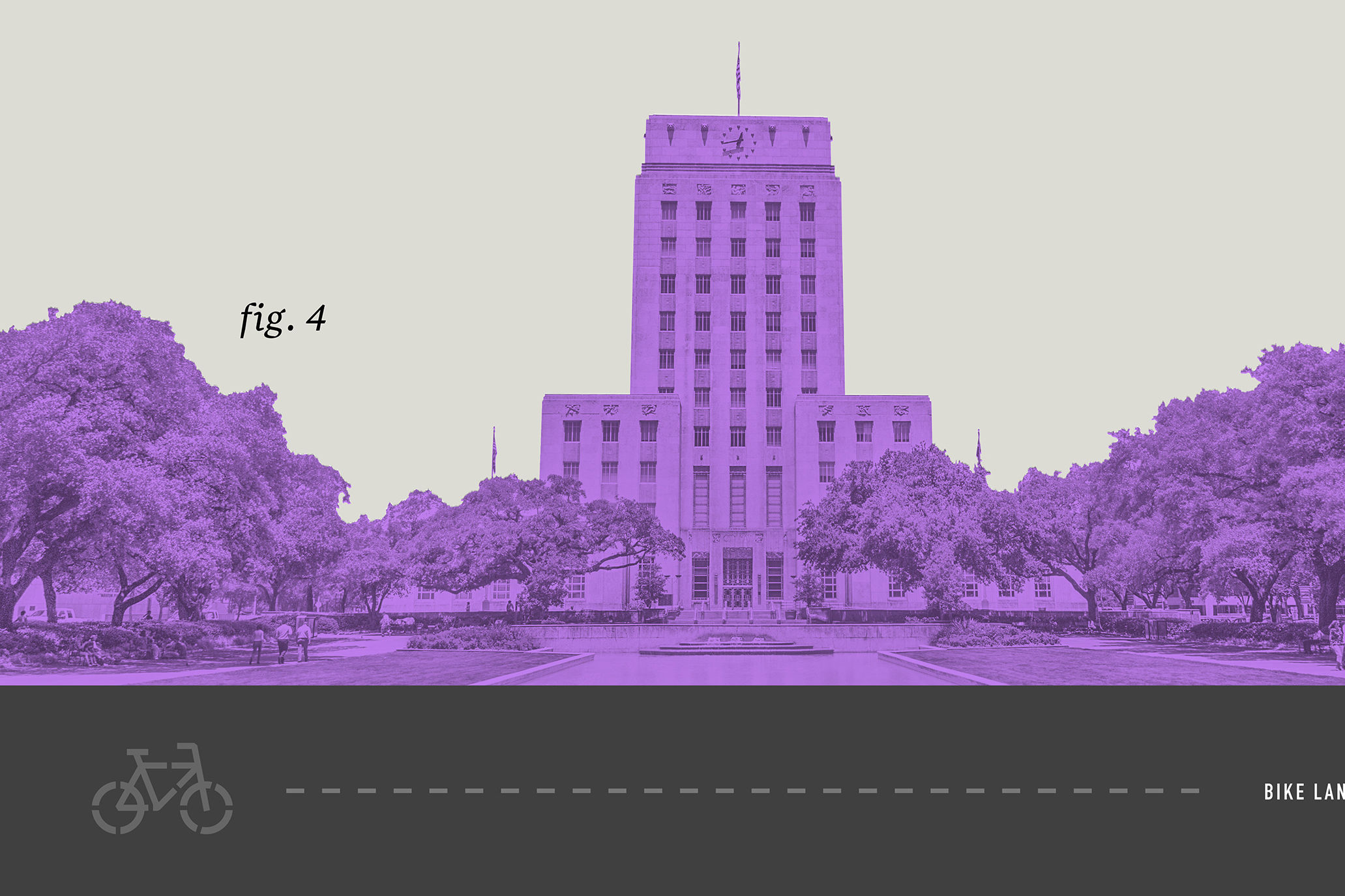What You Missed at Houston City Council This Month

Emily Hynds, known locally as “she who takes notes,” has been independently covering Houston City Council meetings since June 2020. In her monthly Houstonia column, she shares all the juicy intel about what’s going on at city hall. Want to check the meetings out for yourself? Read this companion guide.
In this month’s dispatch: Budget season in full effect, a new police union contract, and a contentious monthly financial report.
The new police union contract
The new police union contract was unanimously approved by city council on May 21. The agreement will raise police officer pay by 36.5 percent over the next five years, starting with 10 percent in the first year, and all told will result in about an $832 million increase. Public safety, which includes the police and fire departments, will make up about 60 percent of the city’s entire budget.
Every councilmember had warm praise for the city’s police officers and supported this pay increase. Councilmembers Leticia Plummer and Abbie Kamin both questioned the reduction of HPD’s community affairs department, but were reassured by both HPD Chief Noe Diaz and Mayor John Whitmire that the reorganization is good because now community affairs officers will be in the field rather than sitting behind desks.
The end of required traffic stops
On May 28, council voted to end a policy that required police officers to make one traffic stop per shift. This item was brought forward by councilmembers Edward Pollard, Tarsha Jackson, and Tiffany Thomas using Prop A. In 2023, Houston voters approved Prop A to allow a coalition of three or more CMs to put something on the agenda without the mayor's approval. Pollard said that removing the quota will keep officers and the public safe. Jackson shared a story about getting arrested by an aggressive officer after being pulled over for not completely stopping at a stop sign 30 years ago.
She said she still gets anxious when cop cars are behind her: “That’s not paranoia; that is lived experience,” she said. “Law enforcement should protect and serve, not perform and produce.”
Mayor Whitmire supported this ordinance change, although he did point out that the rule has not been enforced by Chief Diaz, whom Whitmire appointed.
June’s juicy monthly financial report
The girls, they were fighting. At the June 3 meeting, controller Chris Hollins and finance director Melissa Dubowski clashed repeatedly during the monthly financial report. Hollins was heavily critical of the mayor’s proposed budget, saying it “falls short of what Houstonians deserve.” He warned of potential property tax rate and water bill increases, increased debt, and a lack of transparency from the administration.
Director Dubowski said Hollins’s criticisms were disingenuous, premature, that he was “confused about the details,” and that he was making questionable assumptions. Mayor Whitmire defended the proposed budget, saying, “The misrepresentation and the politicizing of people's lives and careers is unfortunate.”
Hollins had previously suggested he might not be able to certify available funds for the proposed budget, but reversed course when the drainage lawsuit settlement was finalized by a court.
The main event: budget season 2025
Much of late May and early June was dominated by the budget. In addition to regular public comment sessions every Tuesday, the city hosted a public hearing on May 21, as well as 20 budget workshops and two town halls. Controller Chris Hollins also hosted several budget-related public meetings.
The fiscal year lasts July through June, and the budget is named for the end year of the fiscal season. So we’re getting ready for fiscal year 2026, a.k.a. FY26. The annual budget funds every department (Solid Waste, Public Works, Police, Fire, etc.) and many of their programs. Funding for the budget includes tax dollars, state and federal money, investment returns, and more.
Eleven council members proposed amendments to the budget. The budget amendment process is just one of the ways CMs can exert influence, so some of them choose to do so. Out of the 71 proposed amendments, 14 passed. CM Amy Peck proposed the most amendments, 30, only two of which passed.
At the public comment portion of the city council meeting on May 28, there were 44 public speakers, 26 of whom criticized the mayor’s proposed budget. On June 3, there were 35 public speakers and 19 of them criticized the proposed budget. Many of these speakers advocated for more funding to address flooding and criticized budget cuts to certain departments at the cost of more money for police. At the budget-vote meeting on June 4, there were approximately 60 people in the chamber.
Around three hours into the meeting, during discussion on councilmember Mario Castillo’s proposed amendments, the crowd became agitated enough for the police to enter. After several minutes of ongoing unrest, Whitmire declared a recess and the crowd was cleared, with at least one person forcibly removed, although not handcuffed. Some people were chanting “Houston says, ‘No,’” and “When the streets flood, we flood the streets.” This was a historic event; in my five years of watching city council I have never seen anything come close to this. One person I interviewed said there hasn’t been such unrest at a council meeting in “a generation.” No one was arrested.
The rest of the budget vote was comparatively unremarkable, but it’s hard to compete with a protest. Some of the amendments that passed include funding for code enforcement, more money in the Budget Stabilization Fund (a.k.a. “the rainy day fund”), and funding for ditch maintenance. Councilmembers Abbie Kamin, Edward Pollard, and Tiffany Thomas voted no. (If you want to read comprehensive coverage of the budget discussion and vote, see the notes for June 3 and 4 here.)
Coming up
The Capital Improvement Plan (CIP) is up for discussion at the June 25 meeting. The CIP is a five-year plan updated annually, addressing the city’s infrastructure needs. Big money goes through the CIP. The city received $315 million from the US Department of Housing and Urban Development (HUD), and there has been lots of discussion on how it should be spent, with more to come. I will, of course, take notes on it all to share with you next month. Houston City Council meetings take place almost every week on Tuesdays and Wednesdays at 901 Bagby Street or online via HTV.




